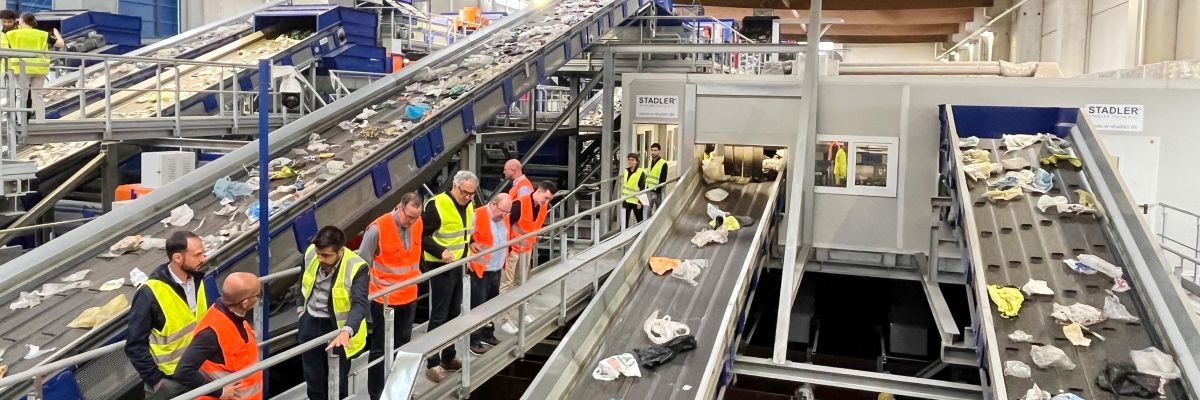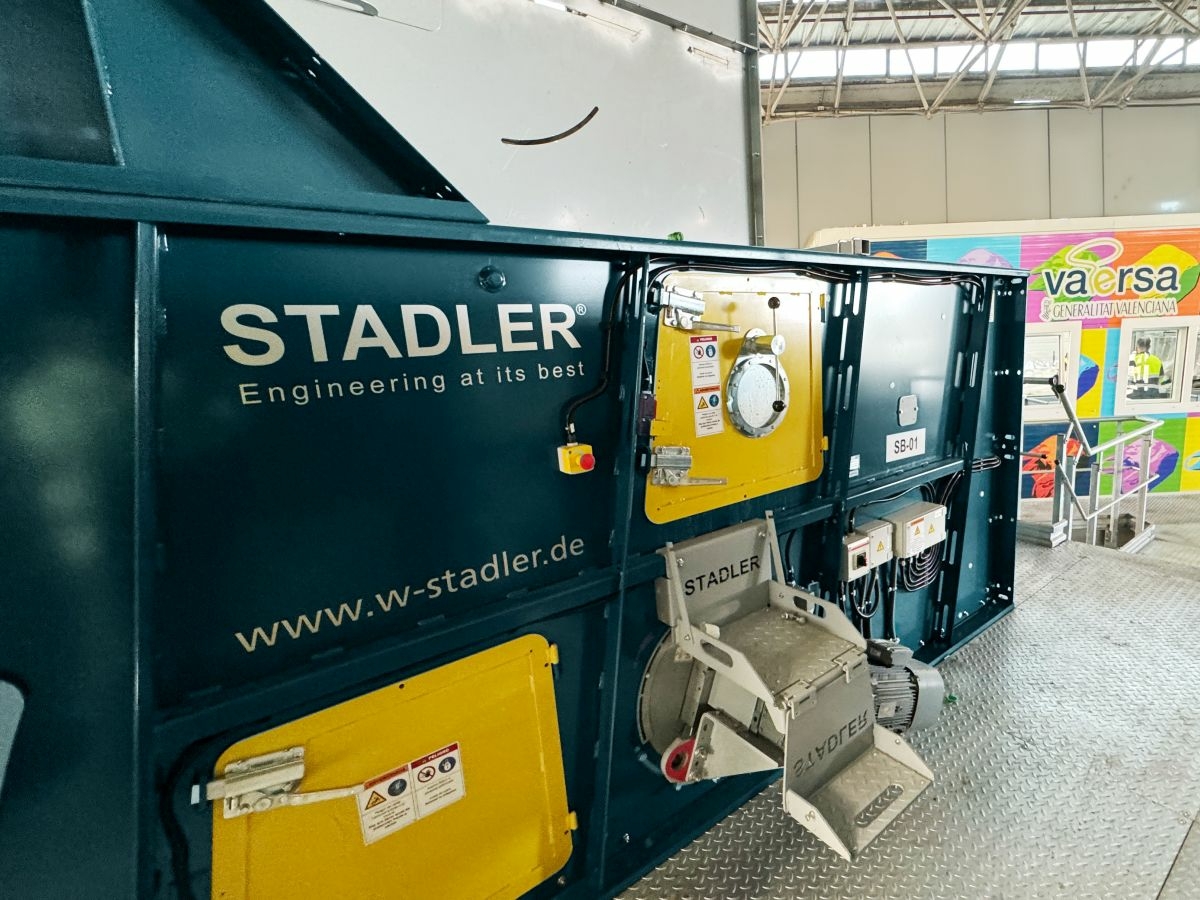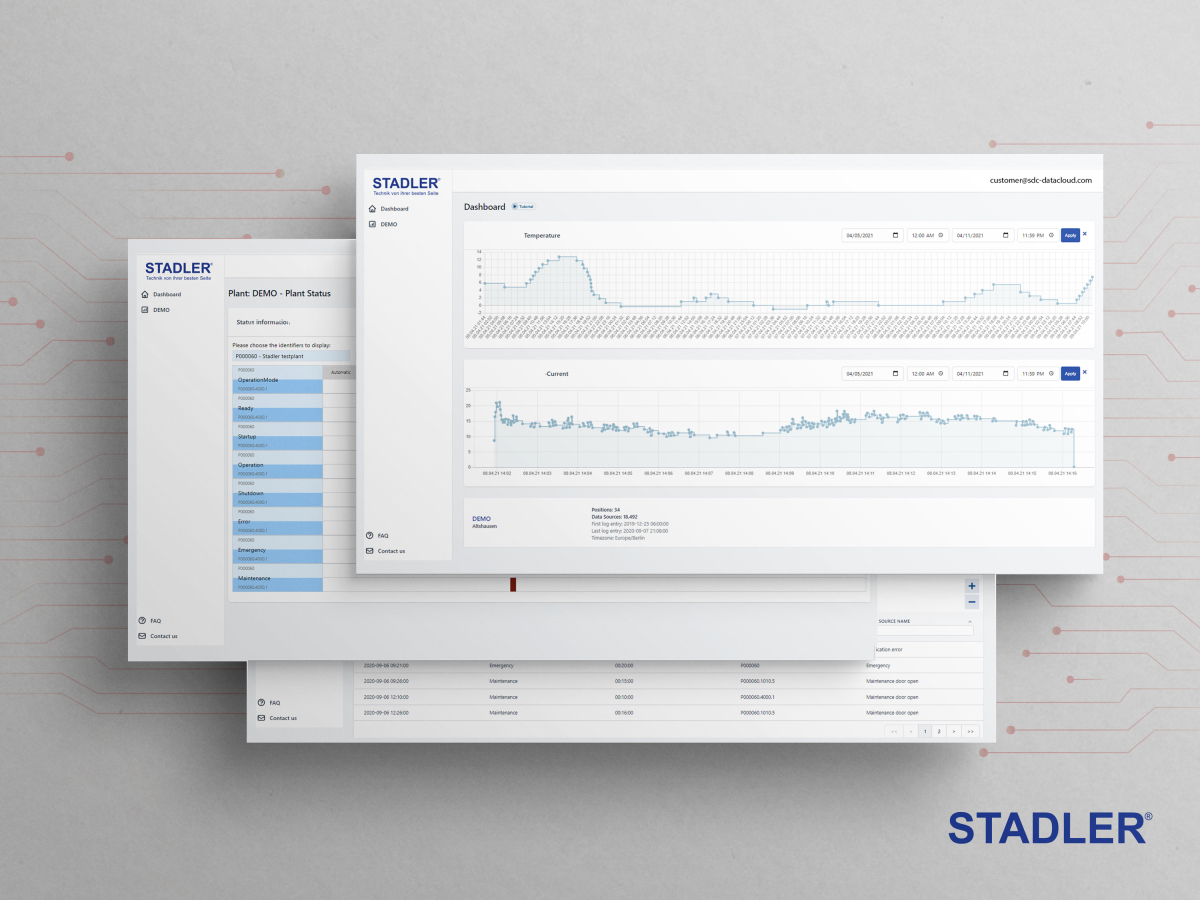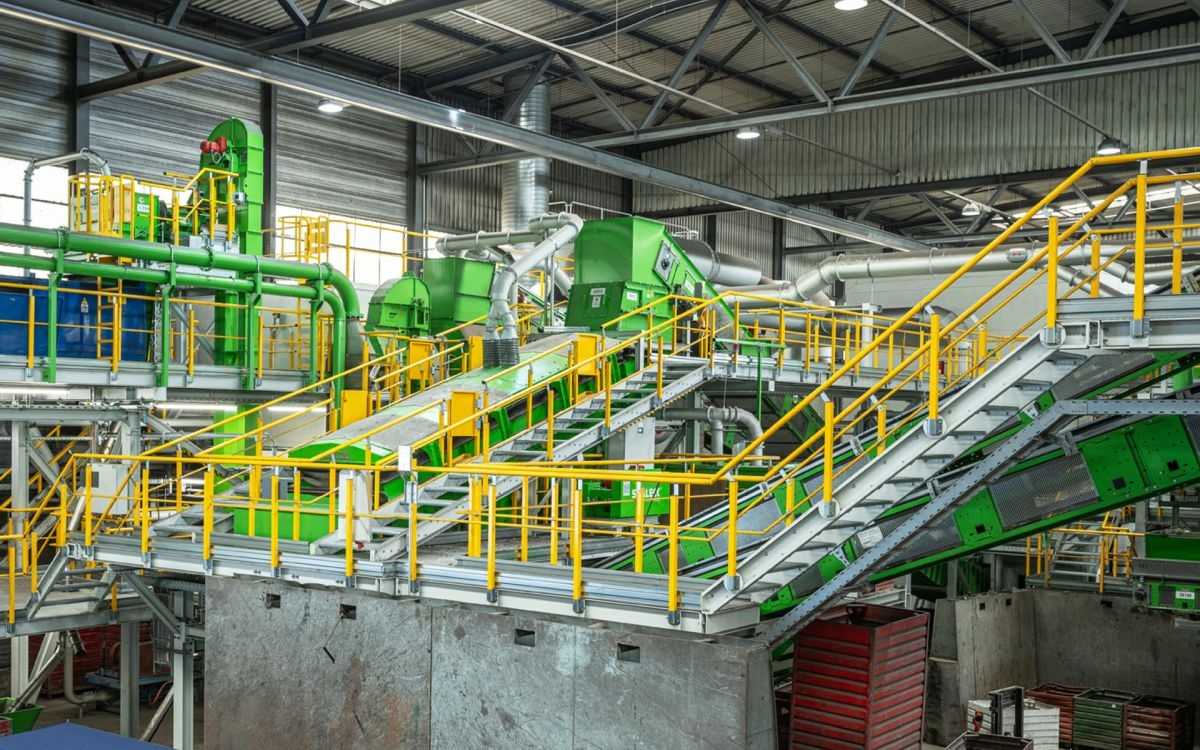STADLER Digital Solutions: transforming recycling with smart, data-driven plant optimisation
26.11.2024STADLER Anlagenbau GmbH is transforming plant operations with its digital solutions developed specifically for sorting facilities. Its cloud-based platform STADLERconnect provides a single access point for the company’s digital solutions and harnesses machine and material data to optimise sorting plant performance. By pioneering digital solutions, STADLER is advancing the recycling industry towards a new era of smart, data-driven sorting plants.
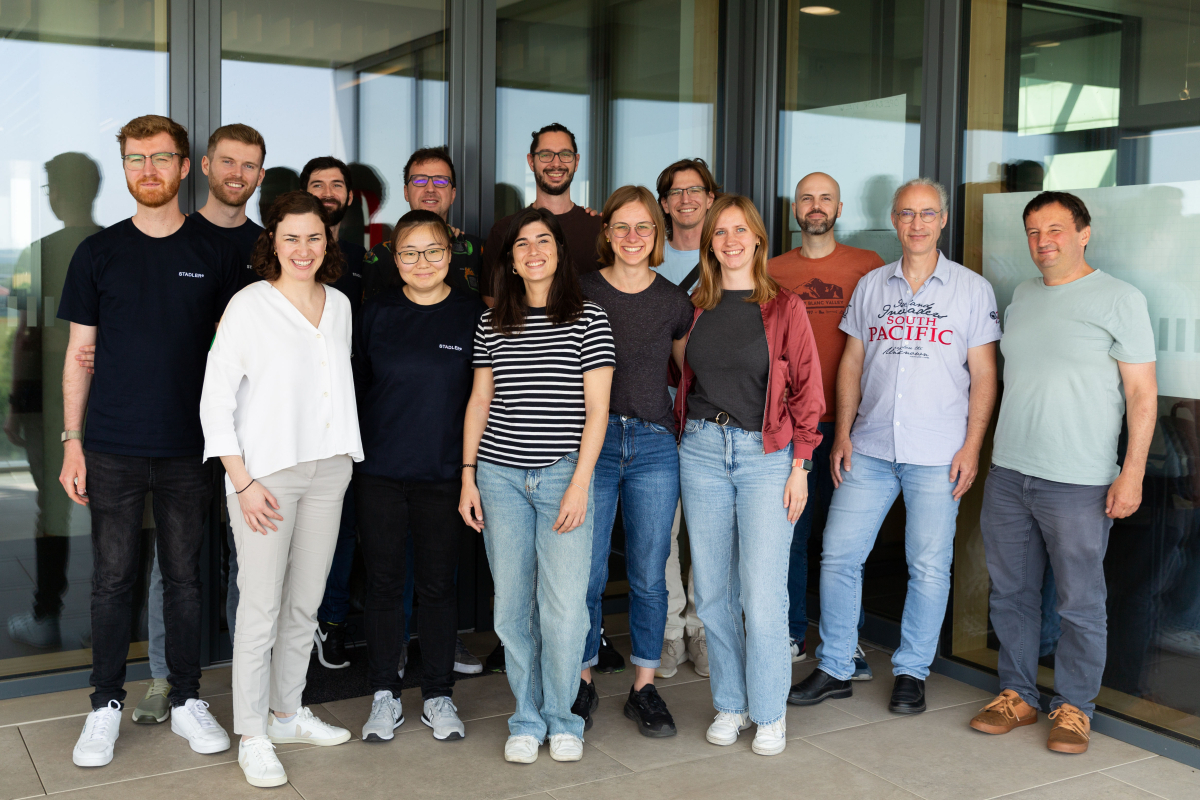 Digital solutions team
Digital solutions team
© STADLER
STADLER is transforming recycling plant efficiency with its digital solutions specifically tailored for sorting plants with a focus on optimising operations. Through its comprehensive cloud-based platform STADLERconnect, the company offers recycling and sorting plants a single-access-point solution for its digital products, helping them unlock the full potential of machine and material data to drive impactful operational improvements. It is designed to deliver added value to recycling plants of all types and sizes and offers customized views for both operators and management.
With digital solutions taking on an increasingly critical role in the recycling industry, STADLER has made it a core strategic priority – both in its operations and in the sorting plants it designs. Julia Stadler, Chief Digital Officer, explains: “At STADLER, we view digital solutions as crucial for maximizing the performance of recycling plants, positioning them as a core part of our innovation leadership. Our strategy centres on sustaining our role as the market leader and a pioneer in designing and building turnkey recycling facilities.”
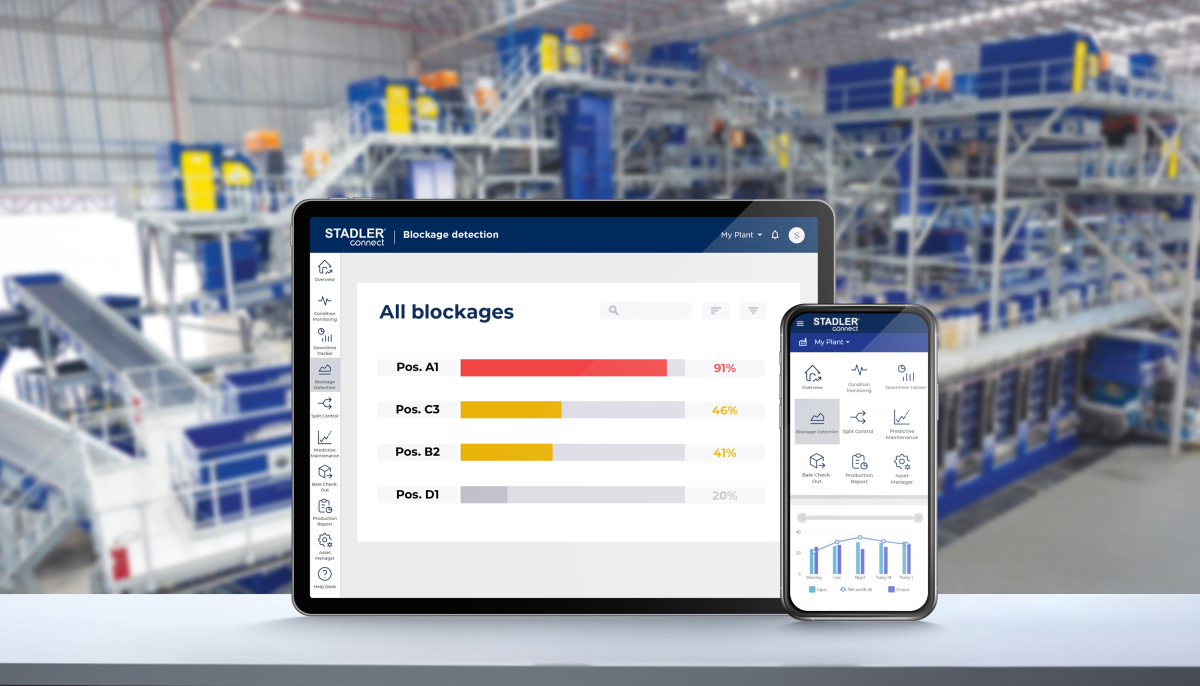 Blockage detection module
Blockage detection module
© STADLER
Avoiding downtime with predictive maintenance
Predictive Maintenance, one of the STADLERconnect modules, enables a proactive approach to equipment maintenance with the help of sensors, providing operators with instant alerts on any critical changes in sensor data before potential issues arise. This early warning capability allows for immediate inspections, minimising costly production delays and reducing the risk of sudden breakdowns.
Andreas Stöcker, Deputy Operations Manager at REILING has seen notable benefits with this system: “The installation of Predictive Maintenance resulted in easier maintenance and allowed for forward-thinking planning of service work, as every small change to the machine is immediately reported. Before we decided on this solution, some bearing damage would occur very suddenly. With the measuring system, we can prevent this issue from happening. From the short time we have been using the measuring system, I can say that it should be installed on every machine from the beginning, although, including it subsequently makes sense as well.”
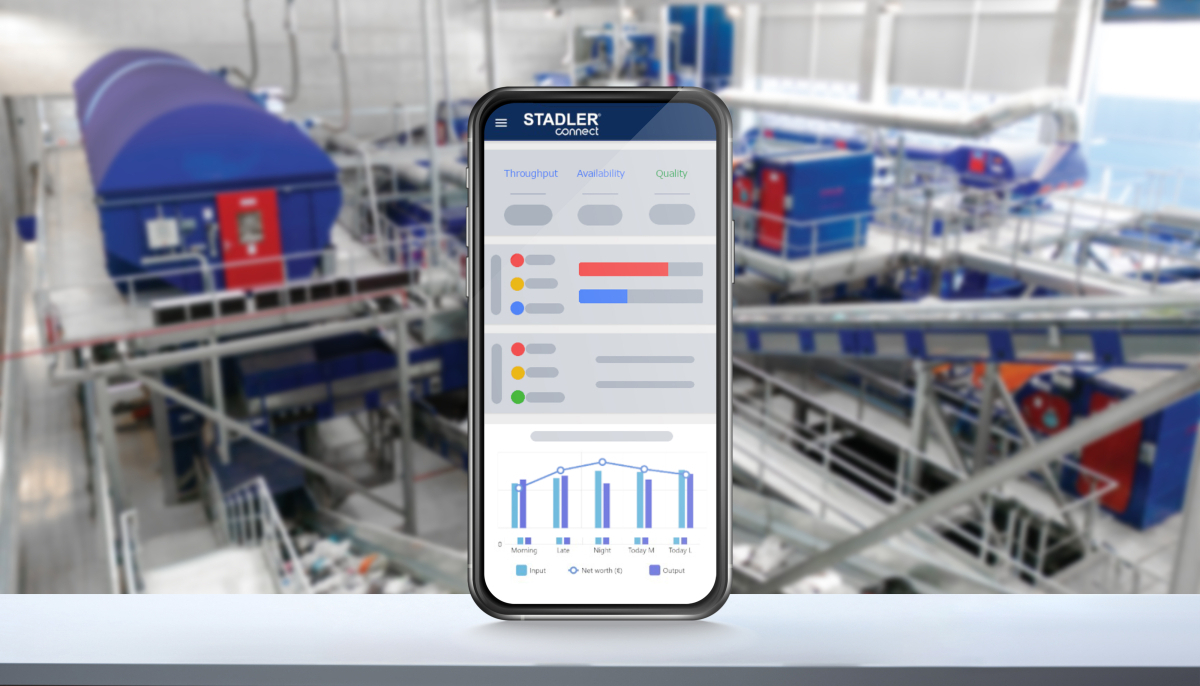 Status view
Status view
© STADLER
“From a planning perspective, we’ve seen significant improvement,” said Pieter Van Camp, Lead of Maintenance at INDAVER, another customer using STADLERconnect at its sorting plant. “Operating at a high level of technical availability (95 %), every instance of downtime greatly impacts production. With the implementation of these sensors, we feel more secure knowing we can continuously monitor the condition of our machinery. For example, by monitoring the ballistic shafts, we can track their condition in real time and observe any decline in performance. This capability allows us to extend their operational lifespan and precisely determine the optimal time for replacement. As a result, we’re saving both time and money! Overall, our experience with the wireless sensor system has been transformative.”
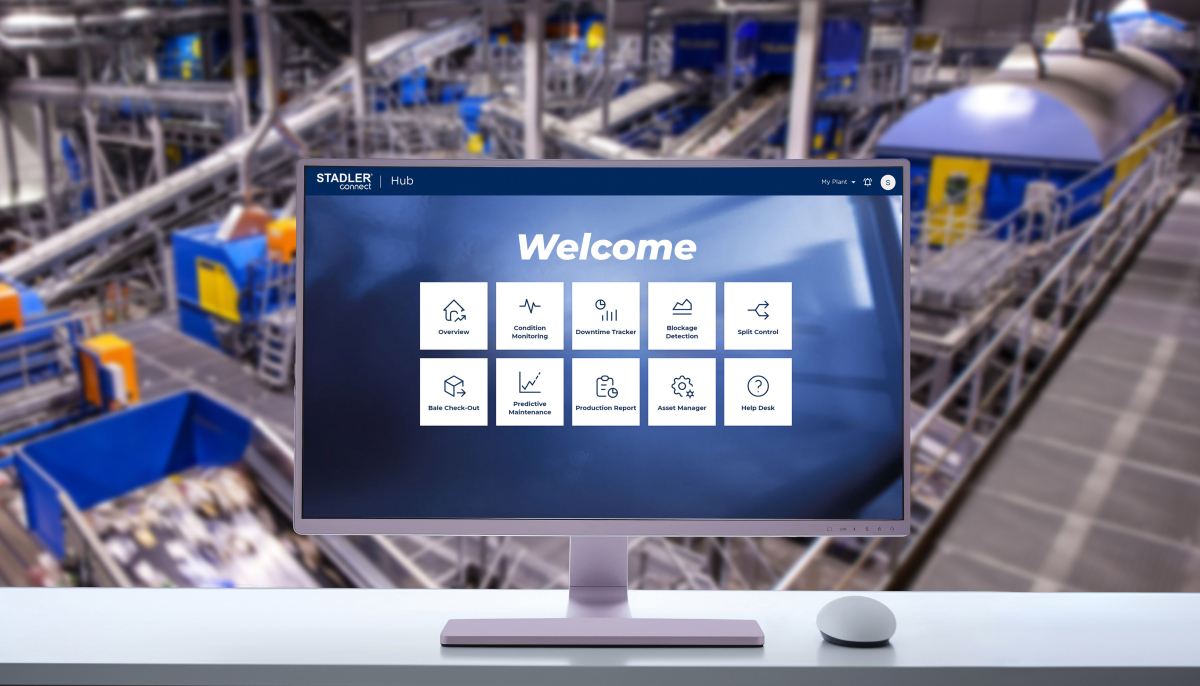 Through its comprehensive cloud-based platform STADLERconnect, the company offers recycling and sorting plants a single-access-point solution for its digital products
Through its comprehensive cloud-based platform STADLERconnect, the company offers recycling and sorting plants a single-access-point solution for its digital products
© STADLER
STADLER’s Digital Solutions: Driving efficiency and customer value in sorting plants
In developing its digital solutions, STADLER has pursued a twofold objective: delivering added value by using key data insights to enhance plant operations, and applying these insights to improve both plant design and after-sales service.
“Our digital solutions are purpose-built for sorting plants, directly addressing the needs of plant operators,” says Julia Stadler. “Leveraging our extensive OEM expertise, we ensure greater accuracy in areas such as determining conveyor equipment status. Our team combines software development and engineering expertise. This approach goes beyond simple data collection and visualisation: our solutions leverage new and existing data points to drive meaningful operational improvements.”
“There is strong momentum for digital innovation in the recycling sector, with a growing number of recyclers adopting these solutions to lower operational costs and boost plant performance,” adds Julia Stadler.
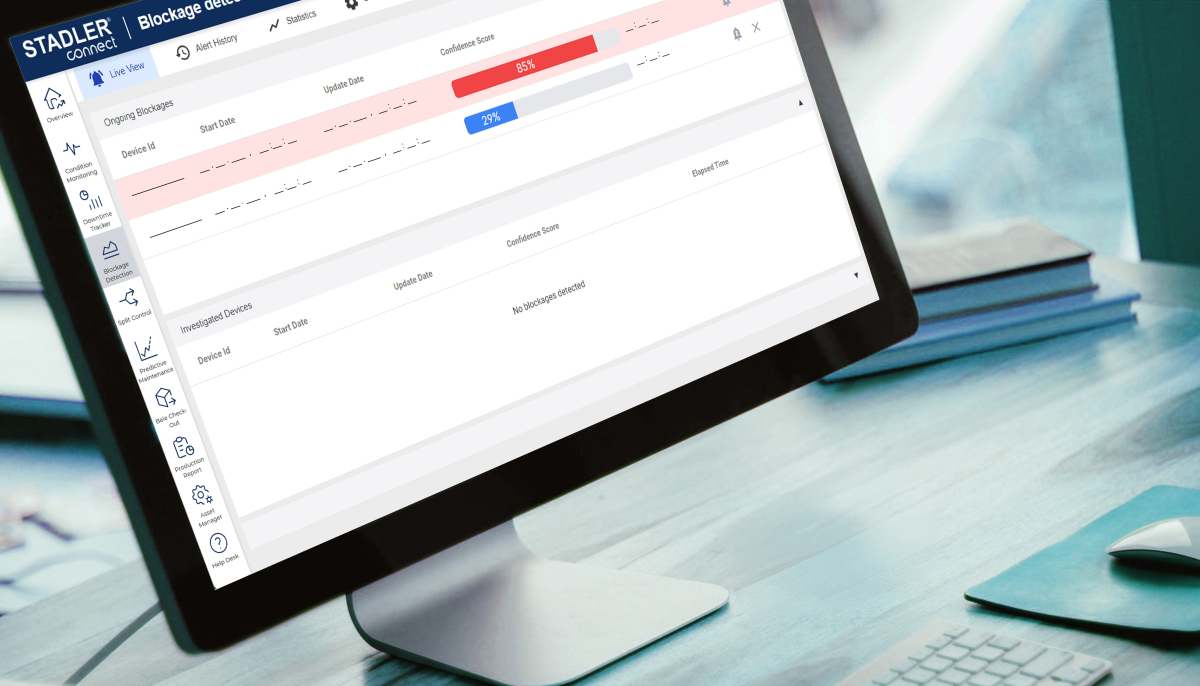 Live view in the Blockage Detection module
Live view in the Blockage Detection module
© STADLER
STADLERconnect: Maximising plant performance with data-driven tools
STADLER’s portfolio of digital solutions can be accessed through STADLERconnect. This cloud-based platform harnesses machine and material data to maximise the availability, performance and overall process efficiency of sorting plants.
Powered by real-time plant data and Artificial Intelligence (AI), STADLERconnect is an integrated solution that adapts to varied plant configurations and needs. It focuses on two core areas.
The first area is centred around machine data and includes four modules:
- Predictive Maintenance: Prevents equipment breakdown
- Blockage Detection: Automatically alerts operators as blockages occur
- Downtime Tracker: Identifies and analyses plant downtimes
- Support Portal: Facilitates communication with after-sales service
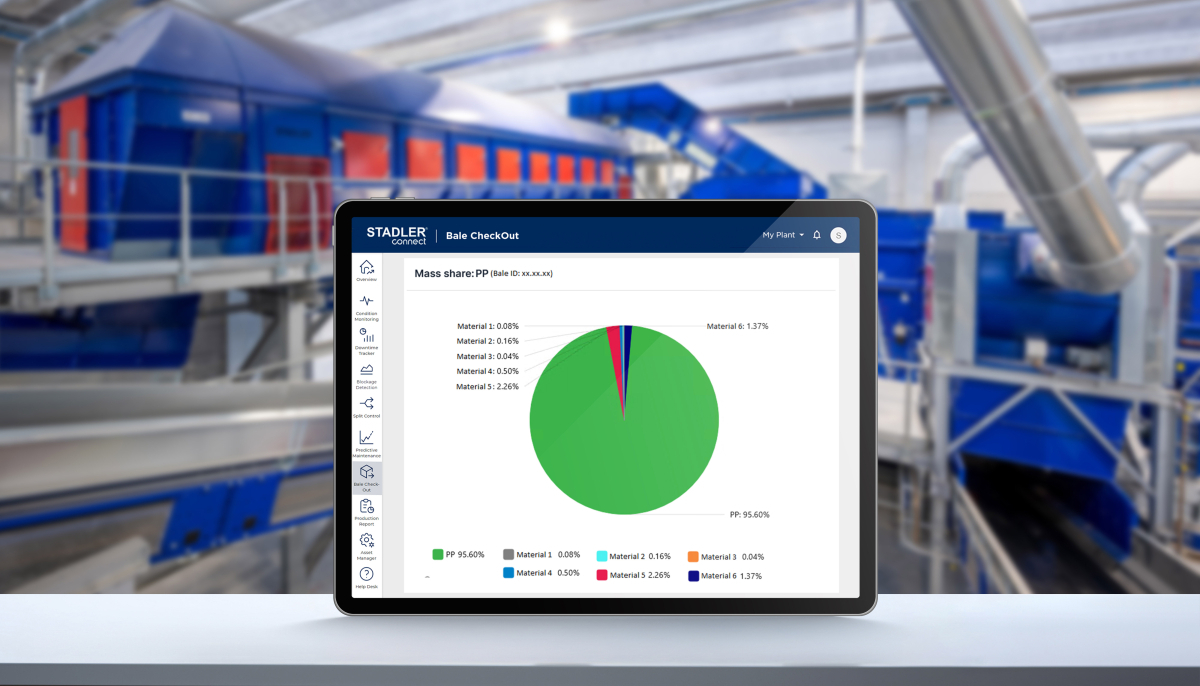 Bale CheckOut module
Bale CheckOut module
© STADLER
The second area is focused on material data and encompasses:
- Material Split Control: Equally distributes material flows to improve performance
- Production Report: Visualizes production data, and in particular material output
- BaleCheckIn: Analyzes material infeed at the bale-specific level
- BaleCheckOut: Analyzes material output at the bale-specific level
“STADLERconnect’s digital tools leverage AI and intelligent processing of material and machine data to optimize plant performance across key areas,” says Dr. Xiaozheng Chen, Material Analysis & AI Specialist at STADLER. “The modules work together to create a seamless flow of information, enhancing plant reliability and supporting operators at every stage – from tracking material quality in real time to automatically controlling processing steps and predicting maintenance needs – all designed to deliver maximum value to our customers.”
By automating various parts of the plant, STADLERconnect improves operational performance while reducing the workload for operators. STADLER’s material analysis tools increase transparency on both quantity and quality. This enables consistent product quality while reducing the need for costly manual quality checks. Additionally, the company’s digital maintenance solutions make service events more predictable and enable rapid responses to unforeseen issues, minimising downtime.
“Through STADLERconnect we provide a unified platform that integrates data from multiple plants and data sources, offering the plant management a centralised, remote overview of all facilities,” explains Julia Stadler. “Our data-driven insights help improve key performance indicators (KPIs), for example by identifying and addressing frequent downtime causes or by avoiding blockages that lead to plant stoppages.”
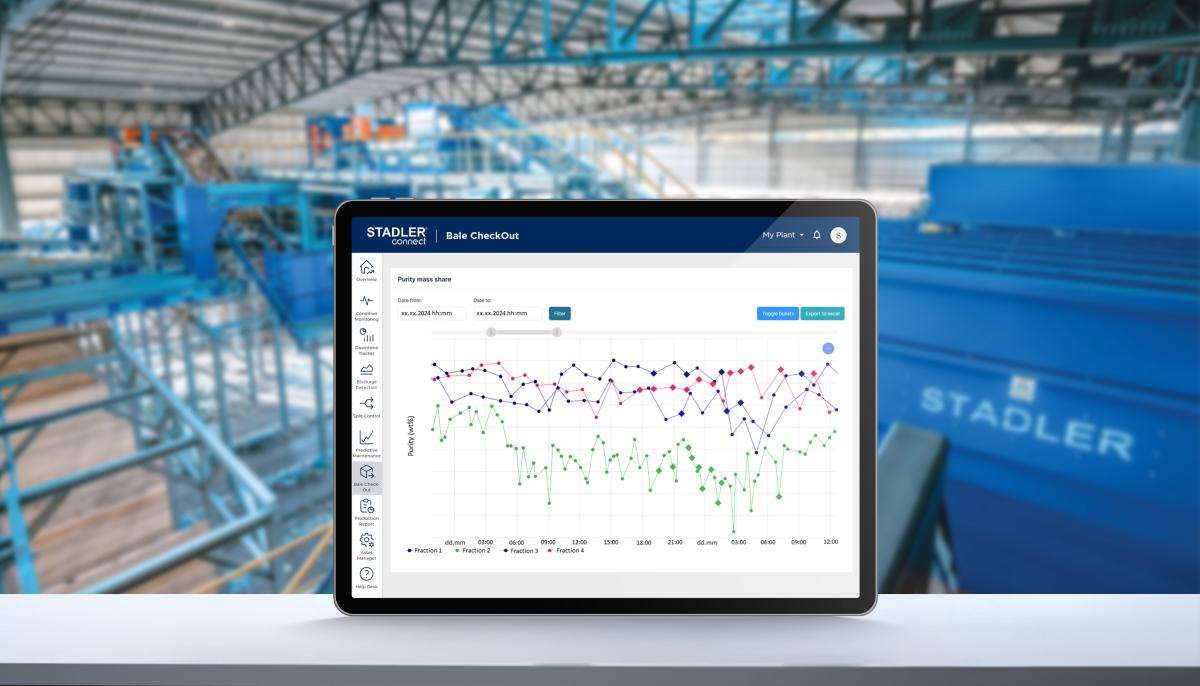 Display for purity mass share
Display for purity mass share
© STADLER
Continuous innovation for a smart sorting revolution
STADLERconnect is designed to adapt to the evolving needs of recyclers, with regular updates, and feature and security enhancements to all modules provided at no additional cost to customers.
“The patented STADLERconnect modules have been successfully implemented in several plants. The next phase of the platform’s deployment is its rollout across STADLER turnkey recycling plants worldwide. We are expanding our portfolio with new modules, such as Windshifter Automation and Infeed Decision Aid, which will be available soon. Additionally, we are not only focusing on integrating data from our own equipment: as an integrator, we are in a unique position to aggregate data from all the equipment in our plants. This will be the next significant step for STADLERconnect. Our ultimate aim is to implement a truly smart sorting plant,” concludes Julia Stadler.

